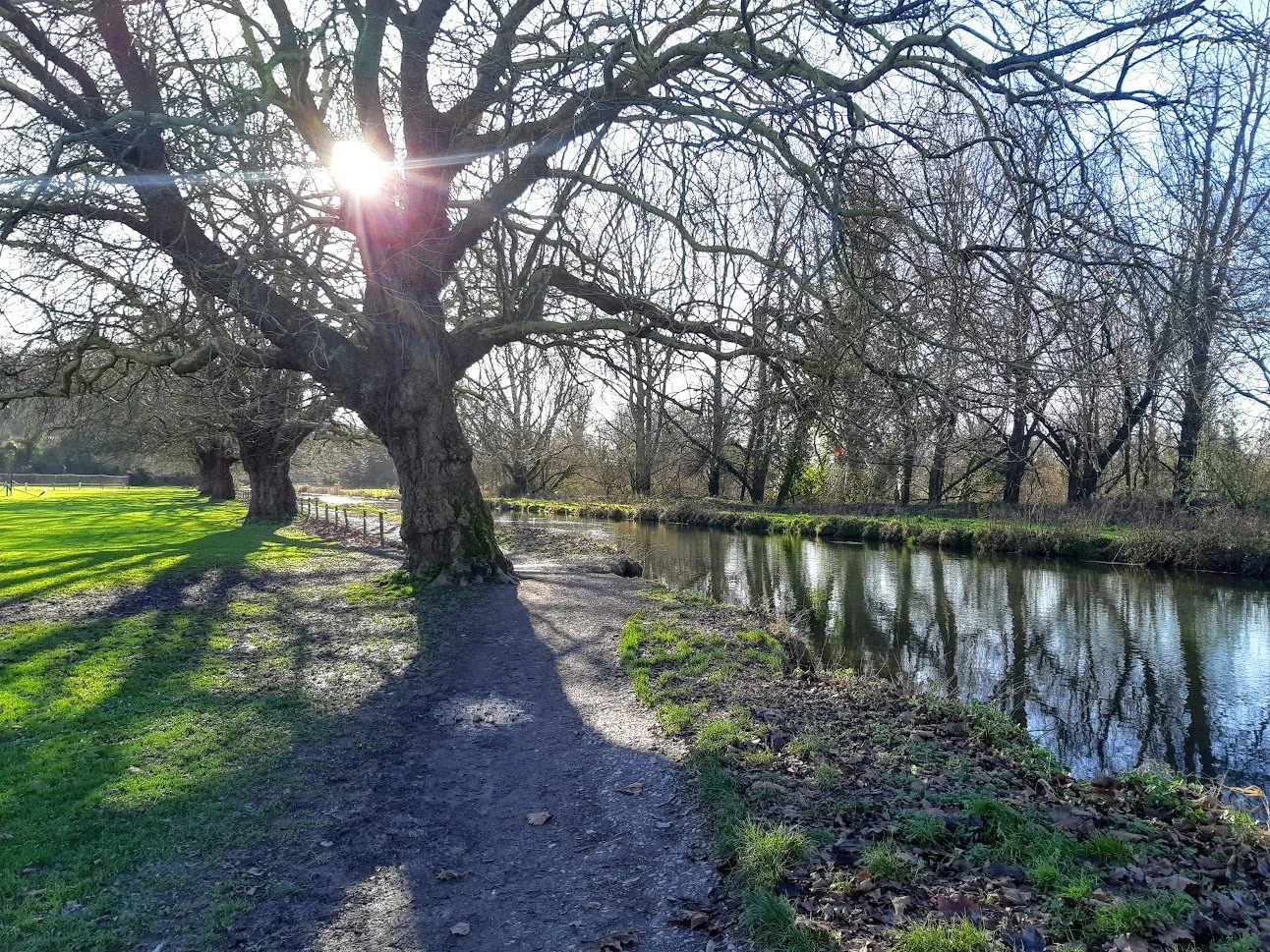It is World Water Day and so we thought we’d celebrate by sharing a blog post that tells the amazing story about one woman and the waterways in Winchester. Water of course is critical to our survival, providing hydration and enabling us to grow food. It is also;
‘used for washing. It was used for transport. It was used for, particularly in Winchester, it was used for weaving and fulling and all the sort of cloth trades’
River Itchen running through Winchester
Tomorrow we’ll tell more about Winchester Waterways in a brand new podcast, when we share the fascinating history of the River Itchen and its significance for Winchester and its local people. Today’s story though is about an extraordinary woman.
In 1299, around 11,000 people lived in Winchester. One of which was Juliana de la Floude. She lived on Shulworth Street, now Upper Brook Street, and worked in her laundrette which was also based in Winchester.
Watercolour of Middle Brook Street attributed to S. Prout R.A. 1813. While this street would have looked slightly different in Juliana’s time, this provides you with an idea of what her street would have looked like
As she worked in a laundrette, it was crucial for Juliana to have a constant flow of clean, running water so that she could clean clothes, thread and yarn for those who used her laundrette.
However, this became problematic when John de Tyting polluted and obstructed the flow of running water to her business. John de Tyting was one of Brooks’ richest residents. He was Alderman of Winchester (a City Councillor in today’s world) and twice Mayor and MP of Winchester.
As they could not settle this dispute between themselves, Juliana wrote to King Edward I and asked him to restore her water supply.
Edward I
He appointed a Commission of local residents from Upper and Lower Brook Street to look into the complaint. The findings of the Commission were shared with the King in the Great Hall in September 1299. Based on these findings, he concluded that “water has always been common”. By this, he meant that all residents have a right to access clean, running water. After this address, the King attached a number of regulations to the Commission’s report and raised the findings from Common Law to Statute Law. This meant that dyes, tanners (sheep skins), butchers’ blood and human blood from barber shops and surgeons and raw sewage was not allowed to enter the River. This prevented anyone from contaminating Winchester’s local water supply.
While Juliana was just one woman who was trying to keep her business afloat, her actions are of great significance. After the ruling, Juliana became known as Juliana de la Floude which translates to Juliana of the Water.
Not only this, but this ruling was later renamed the Concordance de Julian which included the King’s famous words “water has always been common”.
Today, Juliana’s efforts remain just as significant as they were in 1299. These famous words uttered by the King are enshrined in the United Nations Convention of Human Rights. They are used to justify the idea that access to clean, running, drinking water is not a luxury, it is a human right! This has ensured that billions of people all around the world have access to fresh flowing water.
So, next time you put a load in your washing machine or get a glass of clean water from the tap, take a moment to think about Juliana’s courage and amazing work in unblocking Winchester’s waterways. Who would have thought that the simple act of blocking water flow to a small laundrette in the heart of Winchester would have such long lasting significance?!
If you enjoyed reading this then watch out for our special Water Ways podcast being released tomorrow!
Further Reading:
Keene, Derek. Survey of Medieval Winchester. Oxford: Oxford University Press, 1985.
Want to learn more about how Juliana’s work relates to present day? Click on the link below to read more about Juliana as her work and this infamous dispute is discussed within the Winchester Town Forum.
World Water Day 2022 is encouraging us to make the invisible visible. And by invisible they mean groundwater - it is invisible, but its impact is visible everywhere. Almost all of the liquid freshwater in the world is groundwater. As climate change gets worse, groundwater will become more and more critical. Groundwater may be out of sight, but it must not be out of mind. Find out what you can do here https://www.worldwaterday.org/
Photo Credits:
‘flickr, River Itchen,Winchester’, , https://www.flickr.com/
‘flickr, Edward I’,, https://www.flickr.com/
Hampshire Cultural Trust, ‘World Water Day: the washerwoman, the MP and the King’, https://www.cultureoncall.com/world-water-day/




